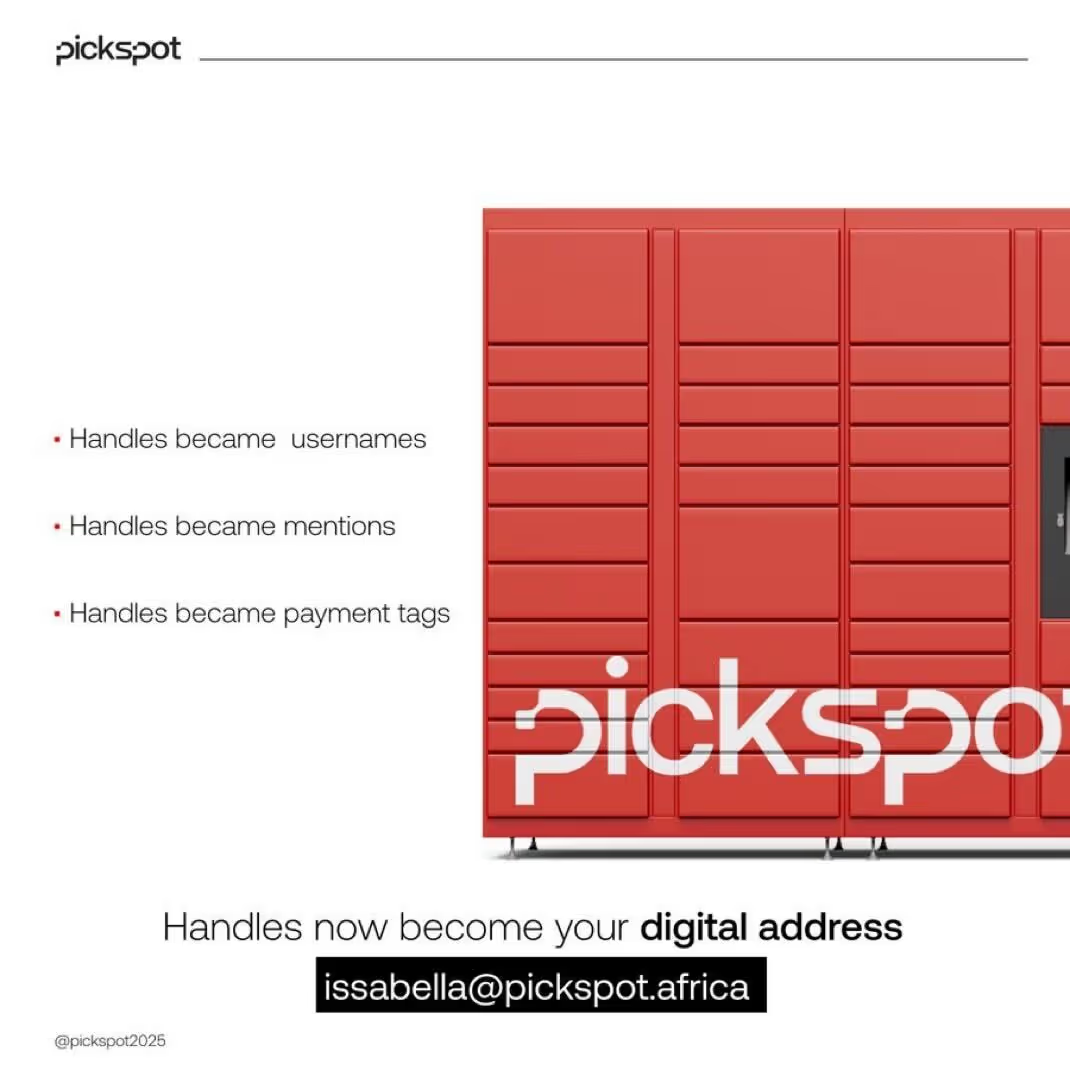
In rapidly urbanizing Sub-Saharan Africa, traditional street addresses are becoming unreliable as cities expand and populations shift. Up to 20% of online orders fail on the first attempt due to address issues ...
Sub-Saharan Africa is the fastest-urbanising region on earth; cities are adding around 65 million new residents every year as rural migrants and young workers stream in.
Homes are rebuilt, recycled or replaced; renters come and go. A street address that seemed valid in January can be useless by July.
When the customer moves or the landmark disappears, a house-based address becomes a liability.
PickSpot lockers act as permanent, GPS-verified anchors scattered through neighbourhood hubs—fuel stations, malls, campuses, even village kiosks.
A shopper’s handle (for example stacy@pickspot.world) lives on their phone and can re-point to any locker with one tap.
Couriers always see a stable drop-point; shoppers keep the same memorable ID wherever life takes them.
In cities that reinvent themselves every season, tying logistics to bricks and mortar no longer works. A smart-locker address follows the person, not the building, delivering predictable economics for merchants and friction-free convenience for shoppers.
As Africa’s e-commerce market races toward USD 300 billion, lockers—and the persistent handles they enable—will be the infrastructure that lets growth arrive on time.